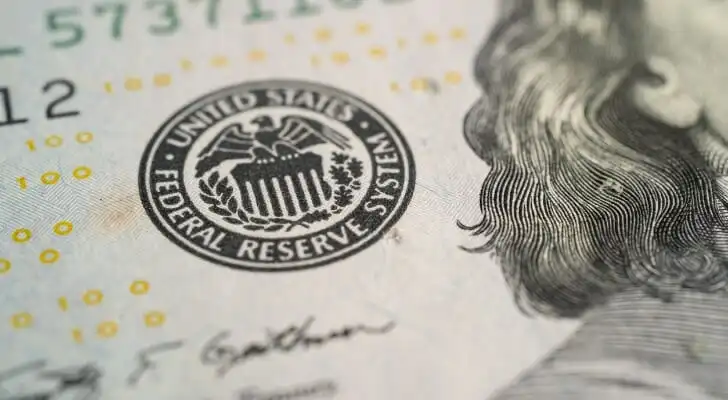The Federal Reserve is pressing pause on its series of interest rate hikes designed to tame inflation – for now at least.
The Federal Reserve Open Market Committee announced Wednesday that it would leave the federal funds rate unchanged, forgoing what would have been an 11th consecutive rate hike. Those increases, which began in March 2022, have brought the federal funds rate from near zero to its current target range of 5-5.25%.
A financial advisor can help you protect your money from the effects of inflation. Find an advisor today.
The increases have been the central bank’s primary weapon in its fight against inflation, which crested at 9.1% in June 2022 but has since receded to 4%. Despite inflation’s recent downward trajectory, it remains well above the Fed’s long-term target of 2%. In fact, officials signaled they expect to see two more quarter-point increases.
What It Means for Retirees
While inflation’s downward trend feels encouraging, retirees and those on fixed incomes remain vulnerable as inflation is still double the Fed’s target range.
“It’s like saying, ‘He’s getting much better because he only robs four people a week and he used to rob 20 people a week.’ Inflation is a kind of robber which steals the value from retirees’ savings accounts and monthly pensions,” said Christopher Manske, founder and president of Manske Wealth Management in Houston.
“The fact that inflation is now stealing a bit less is still too much theft.”
Here are a few things retirees should be thinking about related to inflation and current interest rates:
Put Interest Rates in the Proper Context
High interest rates have made various savings vehicles, including certificates of deposit (CDs) and money market funds, more attractive. But Hao Dang, an accredited investment fiduciary at Consilio Wealth Advisors in Bellevue, Washington, says retirees should remember that the net return on their savings is barely outpacing inflation.
Yet, there is still a benefit to holding more cash at higher rates.
“Safe money can help them sleep better at night and help withstand any future sell-offs in the stock and bond markets,” he said. “If a retiree typically holds six months’ worth of expenses in cash, it could help to increase that to nine months to a year.”
And while a traditional portfolio of stocks and bonds benefits from diversification, savers can also stand to benefit from diversifying their cash position with an eye toward the future.
“Bonds are sensitive to rate hikes so if there are more rate increases down the line, there could be some losses in even the safest bonds,” Dang added.
“Enjoy higher rates while they can but start anticipating where to place cash for two to three years down the line.”
Good News for Pensions?
High interest rates not only mean better yields on bonds, they can also boost the investment returns of public pensions. In fact, a 2019 study conducted by the Federal Reserve Bank of Boston found that low interest rates often lead public pensions to assume more investment risk in an attempt to generate higher yields. This was especially true for funds that were underfunded or affiliated with states that had weaker public finances, the researchers found.
When Will the Fed Lower Rates?

If you’re expecting the Fed to lower interest rates this year, at least one heavyweight in the financial services industry says you may be setting yourself up for disappointment.
Vanguard economists say it’s far more likely that the Fed will either raise interest rates or leave them at their current target as opposed to cutting them this year. In fact, Vanguard’s model predicts that the Fed won’t start to lower rates until the middle of 2024.
“Our model suggests that it’s nearly three times as likely that the Fed will raise its target for the federal funds rate or keep it on hold this year than that it will cut rates,” Asawari Sathe, a Vanguard senior economist, said in a recent edition of Vanguard Perspective. “Our model’s output underscores our conviction that the Fed’s fight against inflation hasn’t yet reached an inflection point.”
As a result, if a saver is looking to open a new savings account or lock in a long-term CD, they’ll want to do so in the next six to 12 months, says Mark Hayes, a certified financial planner (CFP) and founder of Infinitive Wealth Advisory in Fishers, Indiana.
“Savers should consider taking action soon to lock in rates while borrowers might want to hold off,” he said.
Bottom Line
The Federal Reserve chose to leave interest rates untouched at the June meeting of the central bank’s Federal Open Market Committee. The pause comes after 10 consecutive interest rate hikes that brought the federal funds rate from near zero to its current target range of 5-5.25%. With more rate hikes potentially on the way, retirees may want to reevaluate their debt and even consider refinancing, as well as diversify their cash positions.
Retirement Planning Tips
- A financial advisor can help you navigate the complexities of retirement planning. Finding a financial advisor doesn’t have to be hard. SmartAsset’s free tool matches you with up to three vetted financial advisors who serve your area, and you can have a free introductory call with your advisor matches to decide which one you feel is right for you. If you’re ready to find an advisor who can help you achieve your financial goals, get started now.
- Social Security and portfolio withdrawals are two vital components of a retirement income plan. But how much income do you expect to generate in retirement? SmartAsset’s retirement calculator can help you estimate how much money your portfolio
Photo credit: ©iStock.com/sasirin pamai, ©iStock.com/BongkarnThanyakij
